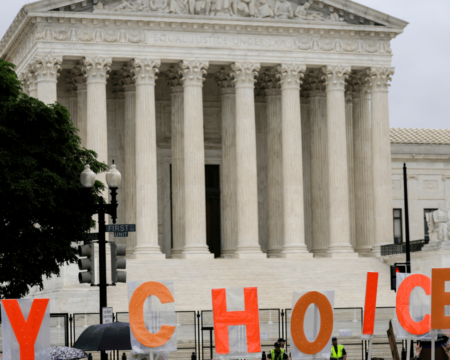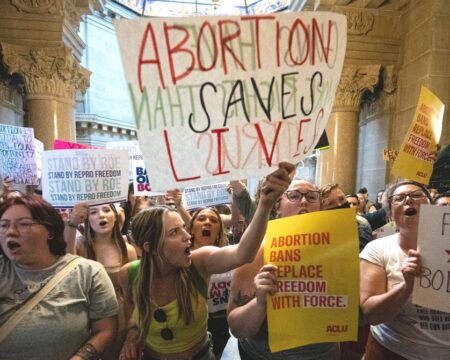Overturning Roe v. Wade is about so much more than abortion
I am weeping for all the women who have lost access to the care I received all those years ago.

@tatyanagladskikh/Twenty20
A little over 13 years ago, I had a missed miscarriage. It happened on a Thursday. And believe me, when the world falls out from under you, you remember the day. My doctor recommended a D&C—or a dilation and curettage—to remove the fetus and prevent bleeding so bad it would require an emergency room visit.
So I scheduled a D&C appointment for the following Monday. But because there was technically still a very low heartbeat—one that was not viable—I was told that if the heartbeat remained, I could choose to go through with the procedure or reschedule.
Related: U.S. Supreme Court overturns Roe v. Wade—what happens now?
When I made the D&C for the following Monday, my doctor warned me that there was a chance the miscarriage might not be complete. In other words, the fetus might still have a weak and unviable heartbeat. You’ll need to decide if you still want to go through with the procedure, my doctor said softly. In other words, she was telling me that I would need to decide if I wanted to have an abortion.
I knew what I would do. There are limits to the agony the human heart can endure, and I had reached my limit. I was already broken, and I had a two-year-old son to look after. By the time my appointment came a few days later, there was no heartbeat at all. But if I had needed to, I have no doubt I still would have gone through with the procedure that morning.
When people think about abortion, all kinds of assumptions come to mind. Very few people think about the women—many of whom are already mothers—who desperately wanted this baby. Few people consider the emotional turmoil that government meddling in the doctor-patient relationship causes. Few people consider that the emotional impact of pregnancy—and the trauma caused when women don’t receive the care they need and deserve, whether that’s access to a safe abortion or a hand to hold when they are told they have lost a much-wanted baby—lingers for years. For a lifetime.
Related: The majority of women who seek abortions are already mothers
I’m fortunate to live in a state that protects a women’s right to choose. And I was fortunate to have a caring and compassionate medical team. I went on to have a healthy “rainbow baby” after that D&C (though not before having yet another miscarriage). I am grateful.
But today I am also devastated. I am weeping for all the women who have lost access to the care I received all those years ago. I am heartbroken for the women who will be faced with those impossible decisions but, instead of having the compassionate guidance of a trusted physician, their choice will be dictated by their government officials.
And I am angry. I am enraged that we live in a country that fails to respect and care for women. I am livid that data about what it takes to actually reduce abortion (contraceptives), what it takes to save lives (access to safe abortion), and what it takes nurture lives (paid parental leave, access to medical care, etc.) are ignored.
Mostly I join the three dissenters to the decision in Dobbs v. Jackson Women’s Health Organization. I am filled with so much sorrow.
“With sorrow—for this Court, but more, for the many millions of American women who have lost a fundamental constitutional protection—we dissent.”


